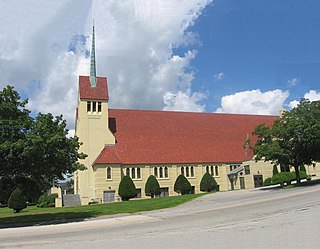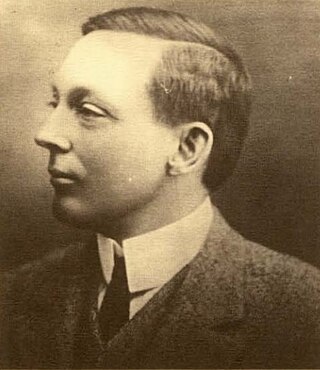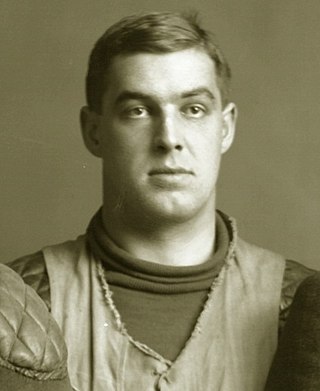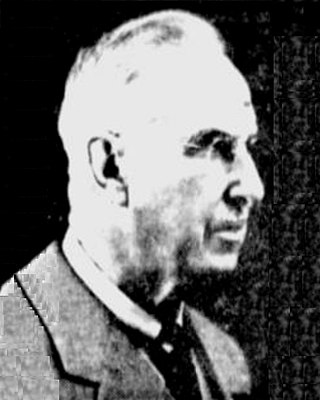Related Research Articles

Androscoggin County is a county in the U.S. state of Maine. As of the 2020 census, the county's population was 111,139. Its county seat is Auburn and its largest city is Lewiston.

Auburn is a city in south-central Maine, within the United States. The city serves as the county seat of Androscoggin County. The population was 24,061 at the 2020 census. Auburn and its sister city Lewiston are known locally as the Twin Cities or Lewiston–Auburn (L–A).

Lewiston is the second most populous city in the U.S. state of Maine, with the city's population at 37,121 as of the 2020 United States Census. It is the most central city in Androscoggin County. The city lies halfway between Augusta, the state's capital, and Portland, the state's most populous city. It is one-half of the Lewiston-Auburn Metropolitan Statistical Area, commonly referred to as "L/A." or "L-A." Lewiston exerts a significant impact upon the diversity, religious variety, commerce, education, and economic power of Maine. It is known for having an overall low cost of living, substantial access to medical care, and a low violent-crime rate. In recent years, the city of Lewiston has also seen a spike in economic and social growth. While the dominant language spoken in the city is English, it is home to a significant Somali population as well as the largest French-speaking population in the United States while it is second to St. Martin Parish, Louisiana, in percentage of speakers.

Minot is a town in Androscoggin County, Maine, United States. The population was 2,766 at the 2020 census. The town includes the villages of West Minot and Minot Center. It is part of both the Lewiston-Auburn, Maine metropolitan statistical area and the Lewiston-Auburn, Maine metropolitan New England city and town area.

Turner is a town in Androscoggin County, Maine, United States. The population was 5,817 at the 2020 census. The town includes the villages of Turner, Turner Center and North Turner. The town is part of the Lewiston-Auburn, Maine Metropolitan New England City and Town Area.

Wallace Humphrey White Jr. was an American politician and Republican leader in the United States Congress from 1917 until 1949. White was from the U.S. state of Maine and served in the U.S. House of Representatives before being elected to the U.S. Senate, where he was Senate Minority Leader and later Majority Leader before his retirement.

William Pierce Frye was an American politician from Maine. A member of the Republican Party, Frye spent most of his political career as a legislator, serving in the Maine House of Representatives and then U.S. House of Representatives, before being elected to the U.S. Senate, where he served for 30 years before dying in office. Frye was a member of the Frye political family, and was the grandfather of Wallace H. White Jr., and the son of John March Frye. He was also a prominent member of the Peucinian Society tradition.

The Androscoggin River is a river in the U.S. states of Maine and New Hampshire, in northern New England. It is 178 miles (286 km) long and joins the Kennebec River at Merrymeeting Bay in Maine before its water empties into the Gulf of Maine on the Atlantic Ocean. Its drainage basin is 3,530 square miles (9,100 km2) in area. The name "Androscoggin" comes from the Eastern Abenaki term Ammoscocongon, which referred to the entire portion of the river north of the Great Falls in Lewiston, Maine. The Anglicization of the Abenaki term is likely an analogical contamination with the colonial governor Edmund Andros.

Edward Little High School is a public high school in Auburn, Maine, United States that was first established as Lewiston Falls Academy in 1835. Philanthropist Edward Little donated 9 acres (3.6 ha) and considerable money to the academy, which was named in his honor. The school is now situated on a 56.25-acre (22.76 ha) tract of land overlooking the city from the top of Goff Hill in Auburn Heights.
Robert William Clifford is an American politician, lawyer and retired justice on the Maine Supreme Judicial Court. He was appointed to this position on August 1, 1986 by then-governor Joseph Brennan. He was reappointed to seven-year terms in 1993, 2000, and 2007. He retired in 2009.

Robert Hale was a U.S. Representative from Maine, and first cousin of U.S. Senator Frederick Hale, also of Maine. A conservative, internationalist, and self-described reactionary, he was known for his unwavering advocacy of civil rights and opposition against the Ku Klux Klan.

Louis Jefferson Brann was an American lawyer and political figure. He was the 56th Governor of Maine.

The Androscoggin County Courthouse and Jail is located at 2 Turner Street in Auburn, Maine, the county seat of Androscoggin County. The original portion of the large brick Renaissance Revival complex was designed by Gridley James Fox Bryant and was built in 1857, with a sympathetic enlargement c. 1915-20. The jail was expanded in 1970 and 1990, and is now accessed via an entrance on Pleasant Street. The complex was listed on the National Register of Historic Places in 1983 for its architecture and its association with the history of Auburn and the county, particularly with respect to the contentious debate over the choice of county seat in the 1850s.

Charles Blanchard "Babe" Carter was an American football player, lawyer and politician. He was the starting right guard on the University of Michigan's 1902 and 1904 "Point-a-Minute" football teams that compiled a record of 21–0 and outscored opponents 1,211 to 34. He was a lawyer in Maine and also served in the Maine Senate.
Naval Auxiliary Air Facility Lewiston, located at Lewiston, Maine, is a closed facility of the United States Navy, and was established as one of five air facilities to support Naval Air Station Brunswick, Maine, during World War II.
Harry Manser, of Auburn, Maine, was a justice of the Maine Supreme Judicial Court from July 18, 1935, until his retirement on March 20, 1946, remaining in active senior service until his death in 1955.
Nathaniel Tompkins was an American politician and jurist from Maine. Tompkins, a Republican, was elected to five terms in the Maine Legislature, including three in the Maine House of Representatives and two in the Maine Senate. During his tenure in the House, he served as House Speaker in 1935–1936. In 1938, he was elected to the Maine Senate. After being re-elected in 1940, Tompkins was elected by his fellow State Senators to be Senate President. He was appointed as a circuit court judge mid-way through his only term as President. Four years later, on July 27, 1945, he was appointed to the Maine Supreme Judicial Court. He served in that position until his death in April 1949. He died in the Aroostook County Court House in Houlton.
Peter Trafton Snowe was an American businessman and politician.
Charles William Goddard was an American lawyer, politician, and diplomat. Goddard, a Whig turned Republican, served two one-year terms in the Maine Senate. In his second year, he was chosen Senate President.

Louis Bartlett Costello was an American newspaper publisher and banker who served as general manager and then president of The Lewiston Daily Sun and Lewiston Evening Journal in Lewiston, Maine. He began his career in journalism while still a student at Bates College and, by the end of his life, was a leading press figure in the state.
References
- "Alonzo Conant, Former Auburn Municipal Court Judge, Dies at Age 47," Lewiston Evening Journal, 5 January 1962, p. 1.
- "Editorial," Peabody Law Review, Vol. II, No. 2, June 1939, p. 39.
- "Alonzo Conant Had High Rank in State Bar Exam," Lewiston Evening Journal, 5 August 1939, p. 1; and "31 Candidates Pass Maine Bar Exams/ Alonzo Conant Jr. of Auburn First with Mark of 88," The Lewiston Daily Sun, 5 August 1939, p. 14. LINK:
- National Military Personnel Records, St. Louis, Missouri. Also see LINK, and search Registry by entering "Alonzo Conant":
- "On His Third Term," Lewiston Evening Journal, 26 October 1954; and Auburn History Committee. 1968. Auburn (1869-1969); 100 Years a City. Twin City Printery, Lewiston, Maine. p. 269.
- "Judge Alonzo M. [sic] Conant," The Maine Trail, February 1962, p. 5.
- "Alonzo Conant, Former Auburn Municipal Court Judge, Dies at Age 47," Lewiston Evening Journal, 5 January 1962, p. 1.